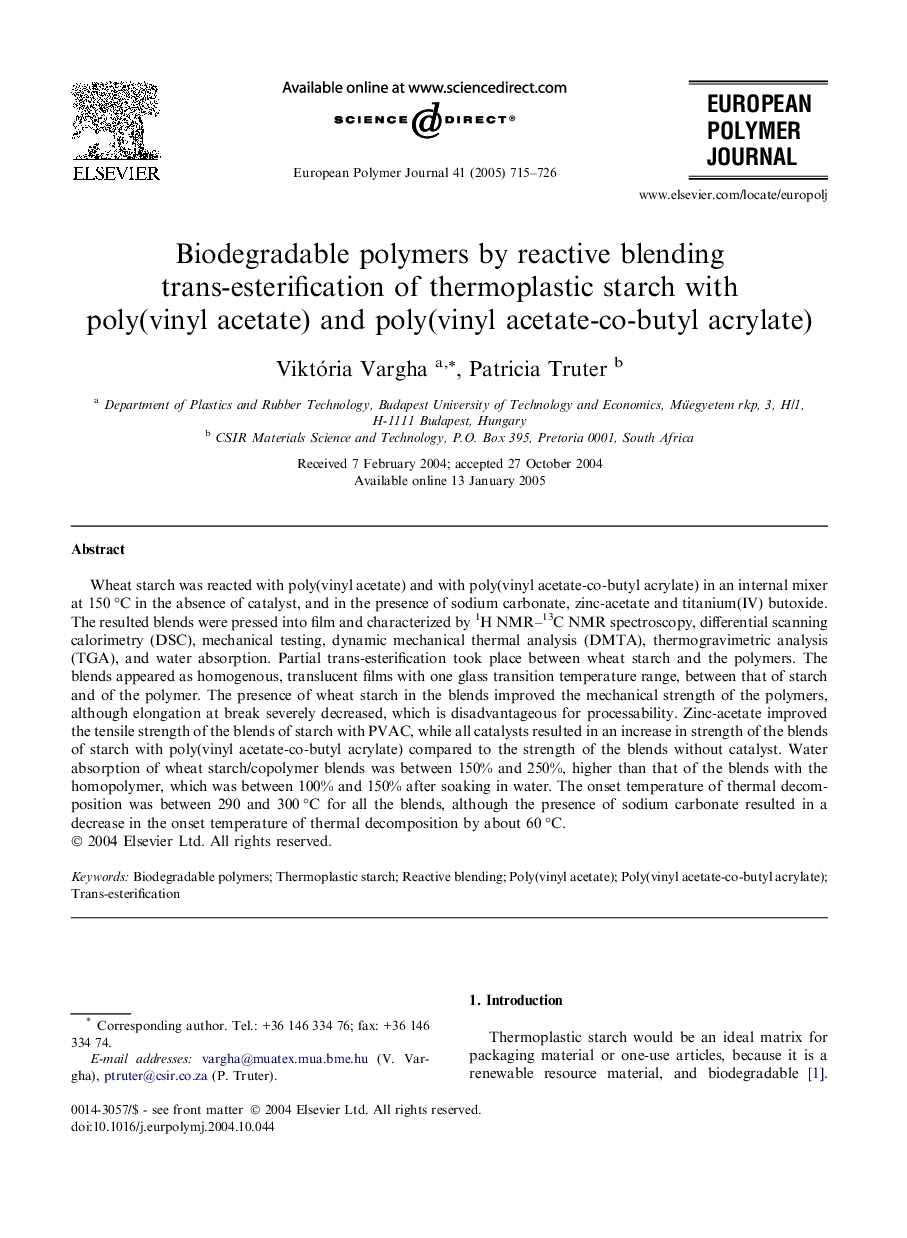| Article ID | Journal | Published Year | Pages | File Type |
|---|---|---|---|---|
| 10608857 | European Polymer Journal | 2005 | 12 Pages |
Abstract
Wheat starch was reacted with poly(vinyl acetate) and with poly(vinyl acetate-co-butyl acrylate) in an internal mixer at 150 °C in the absence of catalyst, and in the presence of sodium carbonate, zinc-acetate and titanium(IV) butoxide. The resulted blends were pressed into film and characterized by 1H NMR-13C NMR spectroscopy, differential scanning calorimetry (DSC), mechanical testing, dynamic mechanical thermal analysis (DMTA), thermogravimetric analysis (TGA), and water absorption. Partial trans-esterification took place between wheat starch and the polymers. The blends appeared as homogenous, translucent films with one glass transition temperature range, between that of starch and of the polymer. The presence of wheat starch in the blends improved the mechanical strength of the polymers, although elongation at break severely decreased, which is disadvantageous for processability. Zinc-acetate improved the tensile strength of the blends of starch with PVAC, while all catalysts resulted in an increase in strength of the blends of starch with poly(vinyl acetate-co-butyl acrylate) compared to the strength of the blends without catalyst. Water absorption of wheat starch/copolymer blends was between 150% and 250%, higher than that of the blends with the homopolymer, which was between 100% and 150% after soaking in water. The onset temperature of thermal decomposition was between 290 and 300 °C for all the blends, although the presence of sodium carbonate resulted in a decrease in the onset temperature of thermal decomposition by about 60 °C.
Keywords
Related Topics
Physical Sciences and Engineering
Chemistry
Organic Chemistry
Authors
Viktória Vargha, Patricia Truter,
